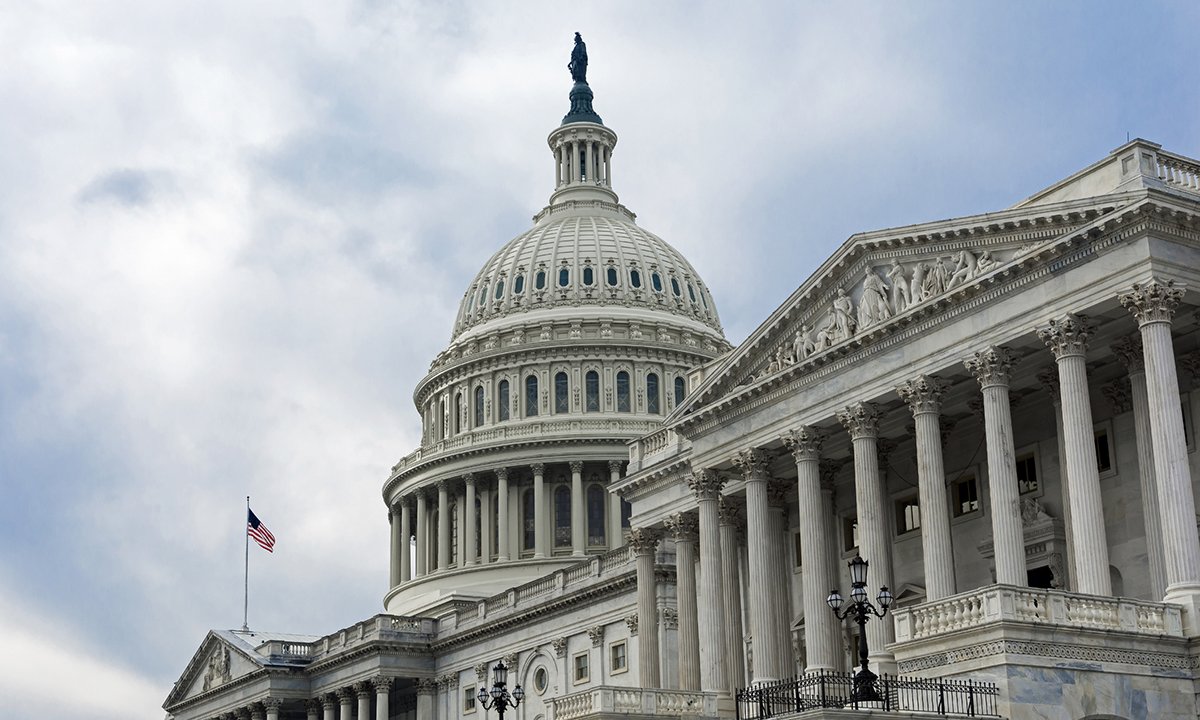‘DARPA for Education’ Is a Good Start. Now, Congress Must Do More
Correa: Funding in omnibus appropriations package should be a down payment on a permanent initiative promoting education innovation

Get stories like this delivered straight to your inbox. Sign up for The 74 Newsletter
Along with an educated and skilled workforce, innovation has always been at the core of the nation’s economic competitiveness. Yet effective innovations are lacking in the field of education.
American education lags far behind that of other countries, especially in STEM, with the United States ranking 30th in math. Learning loss due to the COVID-19 pandemic has only worsened American students’ academic outcomes and widened gaps along racial and socioeconomic lines.
But the seed of a bold new approach to K-12 research and development is buried within the thousands of pages of the Fiscal Year 2023 Omnibus Appropriations recently passed by Congress: a foothold to establish a Defense Advanced Research Projects Agency — DARPA — for education.
In short, the massive package directs the Institute of Education Sciences to pilot a DARPA-like program “to support a new funding opportunity for quick-turnaround, high-reward scalable solutions intended to significantly improve outcomes for students.”
The goal is to help address the massive COVID-19 learning disruptions experienced by schools and the longstanding achievement gaps impacting some of the nation’s most vulnerable students, through applied research and development.
But the pilot of a DARPA for education should only be a start. After all, learning loss is hurting our economy. According to a report from the Organisation for Economic Co-operation and Development, a loss of one-third of a year of learning translates into an economic downturn of $14.2 trillion. Given that the pandemic resulted in American students losing an average of five months of math and four months of reading, the nation can expect an even more significant decrease in gross domestic product.
The omnibus bill’s provision was inspired by the highly successful defense program that led to innovations in advanced robotics, GPS and the Internet. Championed by the Alliance for Learning Innovation and policymakers like former House Appropriations Chair Rosa DeLauro of Connecticut, a full DARPA program would spur the development of groundbreaking solutions to address longstanding deficits and inequities in the education system.
Some of the investments would support breakthroughs in non-technical approaches, like innovative learning models such as different forms of tutoring. Others would leverage advances in computer science to help create more efficient, reliable and valid ways to measure student learning. Other ideas include the development of voice recognition software, like Siri, to assess kindergartners’ literacy readiness and eye movement recognition software to detect dyslexia in young children.
This approach could change the game for countless students at a time when the need — and the potential — for K-12 education has never been greater.
For now, the DARPA for education pilot would be housed at the institute and have a management structure that prioritizes solutions aligned with the science of learning to help dramatically improve student achievement and address gaps between advantaged and disadvantaged students. It would fund projects developed by industry, universities or other innovative organizations. These projects would be selected based on their potential to improve teaching and learning, and would foster greater understanding of which interventions and strategies work for specific children in specific environments.
While the legislation marks an important starting point for boldly improving and innovating in education, it is just the beginning of what could and should be accomplished if a program can become fully established and funded. A true program would become a fifth center at the institute and would need $500 million to staff and operate it.
Looking ahead, my organization, the Federation of American Scientists, and others plan to work with the Alliance for Learning Innovation coalition to build on the momentum of 2022. We’ll continue to advocate for Congress and the administration to fully realize the vision of a DARPA for education.
Bringing a full-fledged program to life would need a bipartisan reintroduction of the New Essential Education Discoveries (NEED) Act in the House, where it failed to pass last year, and bipartisan introduction of this important legislation in the Senate. Additionally, the president should call for increased funding for this initiative in his Fiscal Year 2024 budget request, and Congress should continue to support this new and needed approach to education research and development with increased appropriations.
Innovation has been a hallmark of this great nation since its inception. The country must not lose sight of that when it comes to making sure American education continues to evolve and meet the needs of diverse learners. Whatever disruptions and declines that American students face now are nothing when compared to the nation’s ability to develop and invest in transformative initiatives and centers that can provide new paths to success for students in 2023 and far into the future.
Get stories like these delivered straight to your inbox. Sign up for The 74 Newsletter

;)
